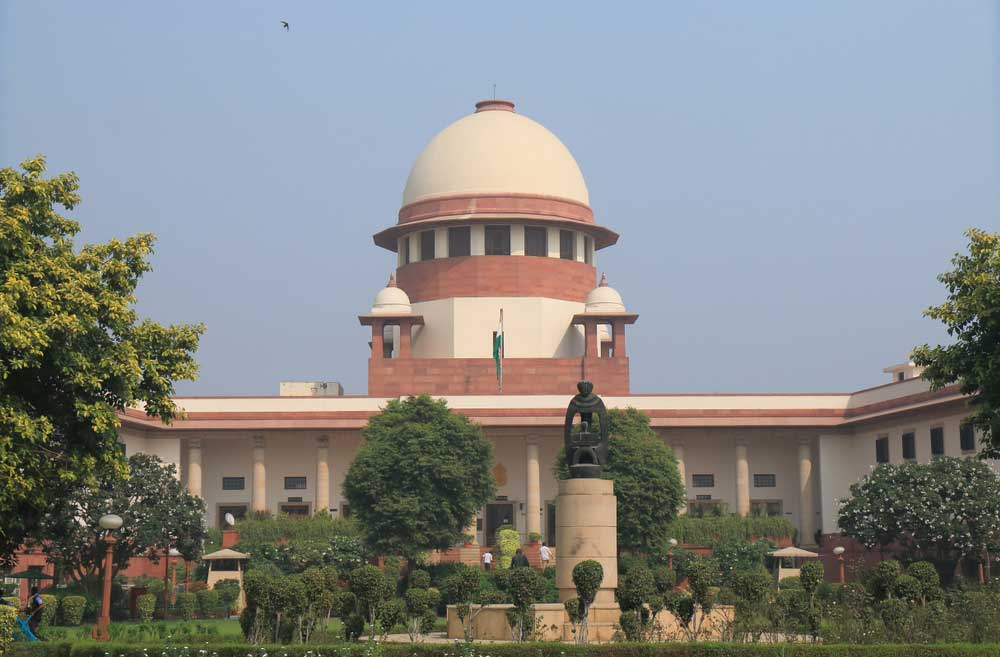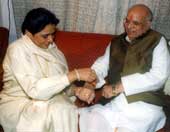The Ayodhya hearing was adjourned as soon as it began on Thursday when one of the five apex court judges withdrew himself after it was highlighted that he had once defended former chief minister Kalyan Singh.
As the constitution bench assembled to decide the hearing’s schedule, Sunni Central Wakf Board counsel Rajeev Dhavan flagged that Justice U.U. Lalit had as a lawyer in 1997 defended Kalyan in a contempt case. Kalyan was in the dock because he as chief minister in 1992 had failed to maintain a court-ordered status quo on the Babri Masjid, which a mob demolished.
“Your Lordship, now I am not saying whether it makes a difference to the hearing…,” Dhavan said.
“But I have no objection to Justice Lalit’s continuing to hear the matter. It is entirely up to Justice Lalit to decide,” Dhavan added, without directly seeking Justice Lalit’s recusal.
Senior advocate Harish Salve, appearing for some of the Hindu claimants, intervened to say he felt Justice Lalit’s past defence of Kalyan would have no bearing on the present case.
But Justice Lalit briefly spoke to his fellow judges and informed Chief Justice Ranjan Gogoi, who headed the bench, that he wanted to recuse himself.
Apart from the Chief Justice, the bench had been formed with four future Chief Justices — Justices Lalit, S.A. Bobde, N.V. Ramana and D.Y. Chandrachud — considering the sensitivity of the matter. The case will now be heard on January 29 after Justice Lalit is replaced.
Dhavan later raised another “technical” point, citing how a three-judge bench headed by then Chief Justice Dipak Misra had by a 2:1 verdict last September rejected the Wakf Board’s plea for a constitution-bench hearing of the Ayodhya case.
He argued that the formation of the current five-judge bench through an administrative order by the Chief Justice was, therefore, improper and that the bench needed to be formed through a judicial order.
This would mean forming a three-judge bench to review the September verdict, which would then have to be referred to a larger (five-judge) bench for possible overturning, to be followed by the formation of a fresh five-judge bench to hear the Ayodhya case.
The Wakf Board has not hidden its preference for the Ayodhya dispute to be heard after the summer general election. Justice Gogoi, however, rejected Dhavan’s plea saying he had the authority to form the current five-judge bench in his administrative capacity.
Before the three-judge bench last year, the Wakf Board had pleaded that the Ayodhya case be heard by a constitution bench so that it could also review a 1994 judgment by a five-judge bench that said mosques were not an essential part of Islam.













